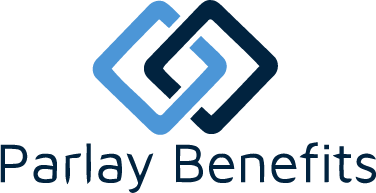An FSA, or Flexible Spending Account, is an account sponsored by your employer that enables you to set aside money from each paycheck, before taxes, to help pay for IRS-approved, out-of-pocket medical expenses for you and your dependents.
FSA Basics
What are the general features and tax benefits of an FSA?
- Your contributions are pre-tax or tax-deductible.*
- Tax-free withdrawals are made to pay your out-of-pocket expenses related to health care and dependent care.
- Because of these tax advantages, the more you use your FSA, the more money you could save. The amount of savings will depend on your personal tax rate.
*Contributions are tax-deductible on your federal tax return. Some states do not recognize FSA contributions as a deduction. Consult a qualified tax adviser for advice.
Why should I enroll in an FSA?
Your biggest advantage is the tax savings. Every dollar you set aside in your account reduces how much you pay in income taxes. Plus, you can be reimbursed for qualified expenses that you are already paying for.
How does an FSA work?
- Funding. You will contribute a pre-determined amount to your account. In some cases, your employer may also contribute to employee FSAs. Your funds will be available for use on the first day of your plan year.
- Accessing funds. When you have eligible health care expenses, pay for them with your payment card, or pay out of pocket and request reimbursement online. Remember to always keep your receipts.
- Requesting reimbursement/substantiating purchases. It’s quick and easy to request reimbursement for eligible expenses paid using personal funds or to submit documentation for card purchases. Our documentation upload features online and on the mobile app will save you time and make your life easier.
Please remember that credit card receipts, non-itemized cash register receipts and canceled checks are not acceptable forms of documentation. Always request an itemized receipt or Evidence of Benefits (EOB) from your health care provider or merchant.
- Claims processing. We will promptly process your request and reimburse you either by check or direct deposit if you sign up for that feature.
- Account management. Log in to your online account or the mobile app to check your account balance, set up your family profile, add a bank account to enable faster reimbursements, or request a debit card in a dependent’s name.
Why should I have a FSA when I already have health insurance?
This healthcare account is used to pay for expenses not covered by insurance such as deductibles, co-payments, co-insurance, prescriptions, dental expenses, glasses, and certain over-the-counter items.
Tax Savings
The average FSA participant saves between 30-40% on taxes when considering Federal, State, and Local taxes, and Social Security contributions.
Flexible Spending Account Plan Types
Flexible Spending Account rules vary by employer. Your employer may choose one of the following:
- Use it or Lose it– All FSA funds must be spent by the end of the plan year or they are lost.
- $500 Carryover– Any unused funds, up to $500, can be carried over from one plan year to the next.
- Grace Period– Participants get a 2 ½ month grace period after the end of the plan year to use any leftover funds.
Uniform Coverage Rule
FSA participants can access the full amount of their annual contribution on the first day of the plan year. For example, if you elect $2,000, and on day one you incur a $2,000 medical bill, you can use all of your FSA money to pay for it, even though the money has not accrued in the account. Throughout the rest of the year, deductions will still come at the same rate from each paycheck. However, the available FSA balance will be at zero once all the funds are spent.
